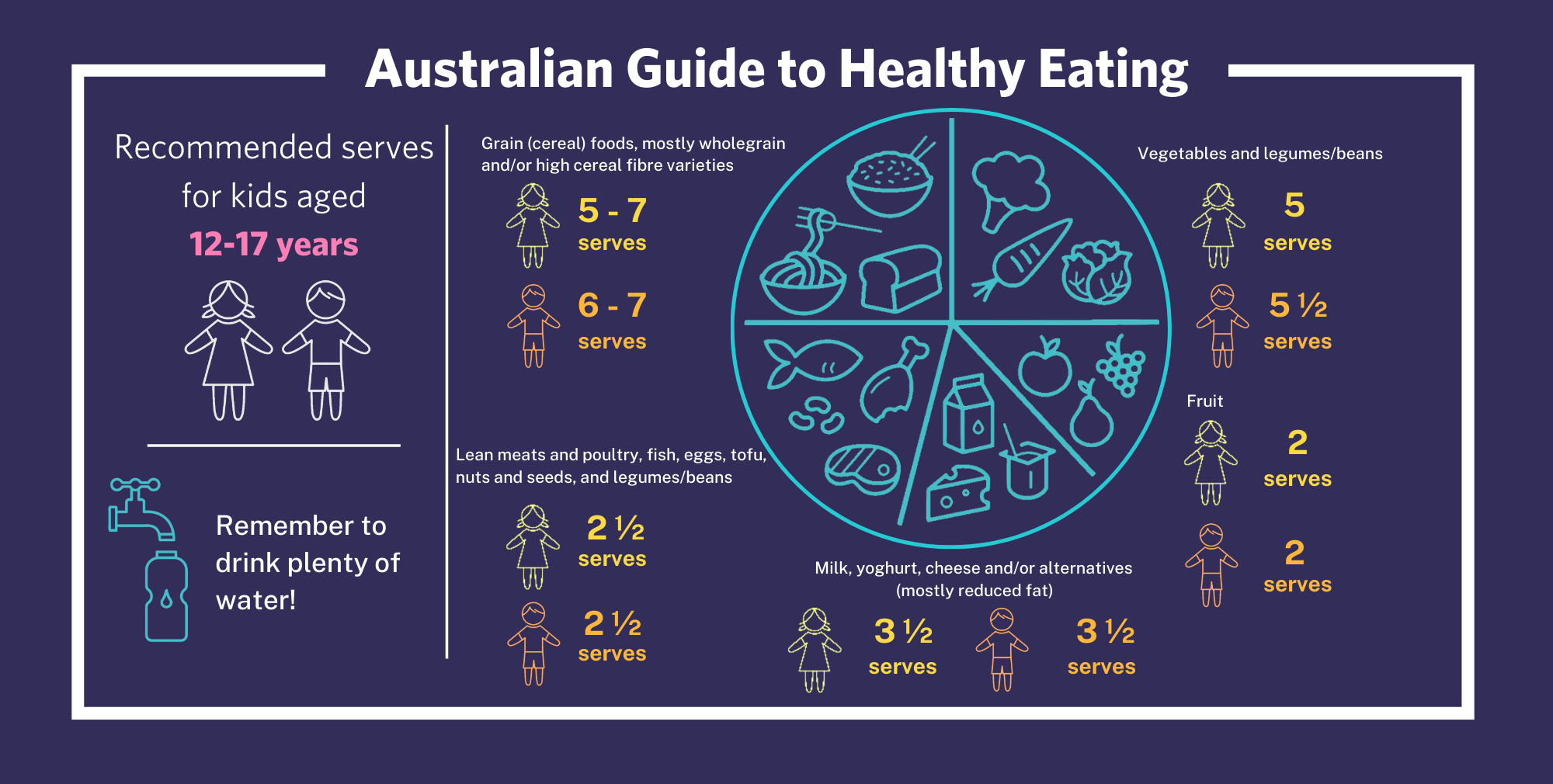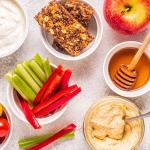
How much should teens be eating?
Making healthy food choices is important for teenagers to ensure they are getting the nutrients and energy they need. As teenagers grow, so does their appetite. However, with more independence and choices available, making sure they eat healthy nutritious food can be a challenge. Increased access to fast food and supermarkets can allow teenagers to buy unhealthy food options such as fried food, potato chips, chocolates, and other confectionary.
Healthy food choices should include a variety of fresh food from the five food groups, which each supply different nutrients to help their body grow and work properly:
-
vegetables
-
fruit
-
grain foods
-
reduced-fat dairy or dairy-free alternatives
-
protein.
What are the recommendations for teenagers?
Teenagers go through a lot of changes with their body. Therefore, they need good, healthy food to support healthy development and growth. This helps to prepare them for a life of healthy eating habits.
Teens need more nutrients such as protein, vitamins, and minerals than younger kids. Planning can help achieve a balanced healthy diet. It is important to encourage teens to listen to their body and learn the signs that they are hungry or full.

Can they have more?
Teens that are taller, more active and within the healthy weight range can have a couple of extra serves from the food groups above. These should be from the vegetables, fruits, and grains and/or nuts and seeds groups firstly, but some choices could also come from the milk and dairy group, lean meats and proteins or unsaturated spreads and oils.
FoodSwitch App
The FoodSwitch app supplies easy-to-understand information about packaged food products as well as a list of similar foods that are healthier choices when shopping for groceries. Each product you see in the FoodSwitch app has been rated using either a colour-coded ‘traffic-light’ labelling system or the Health Star Rating system, so it is easy to see immediately how healthy a food is.
External influence on teen’s eating habits
Children are using social media and accessing the internet daily. This is often exposing them to unrealistic images and feelings on how their body ‘should look like.’ Being overweight or underweight can be a concern for teenagers, however a healthy diet to meet their nutritious needs can help to supply just enough energy for their day. Care should be taken to avoid fad diets and the elimination of whole food groups e.g., no carbohydrates to lose weight, as it is not recommended and can be harmful. If you or your child are worried about their weight, talk to your GP for advice and a referral to a dietitian if needed.
Source: Raising Children Network, Dietitians Australia, Eat for Health National Health and Medical Research Council, Department of Healthy and Aging
Related Topics

Water provides essential support for our body. We need to drink water every day, and the best and cheapest water source is a tap.

The canteen gives your child a chance to practice making independent food choices...

Healthy snacks are a great way to help kids get a good spread of food across the day...

